-
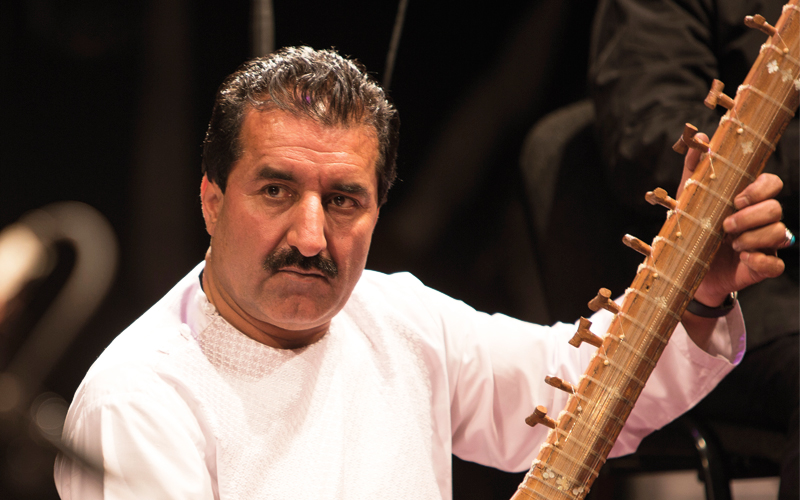
Ustad Mir Afghan
Ustad Mir Afghan is a tanbur and dutar master. He teaches in the music department of the Ministry of culture, in the Aga Khan Foundation and in the Afghanistan National institute of Music. Ustad Mir comes from a family of musicians and has over 25 years of teaching and performing experience.
-
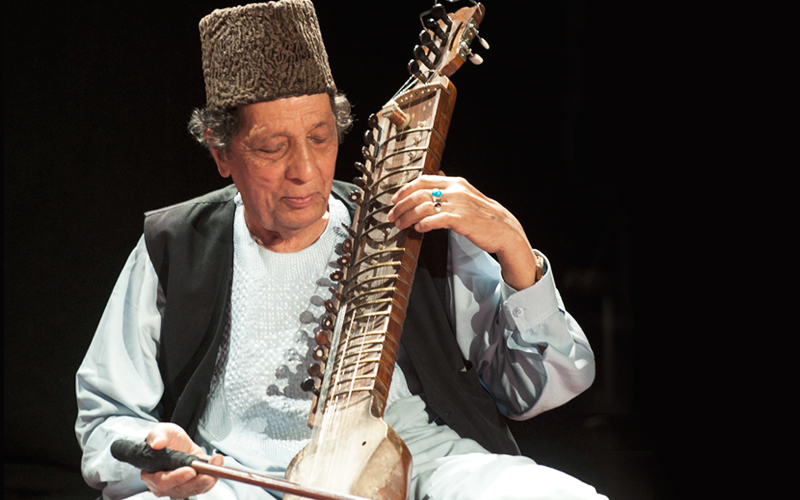
Ustad Amruddin
Ustad Amruddin was born in 1931 in the old city of Kabul. He learned the art of playing dilruba from the famous ghazal musician and classic singer Ustad Rahim Bakhsh. His professional career began in 1957, in the radio orchestra for Radio Television Afghanistan. In recognition of his services he was awarded the honorary title of ‘Ustad’ by the Ministry of Information and Culture. Ustad Amruddin has performed extensively in Afghanistan and internationally, and is devoted to teaching his art to a new generation of students.
-
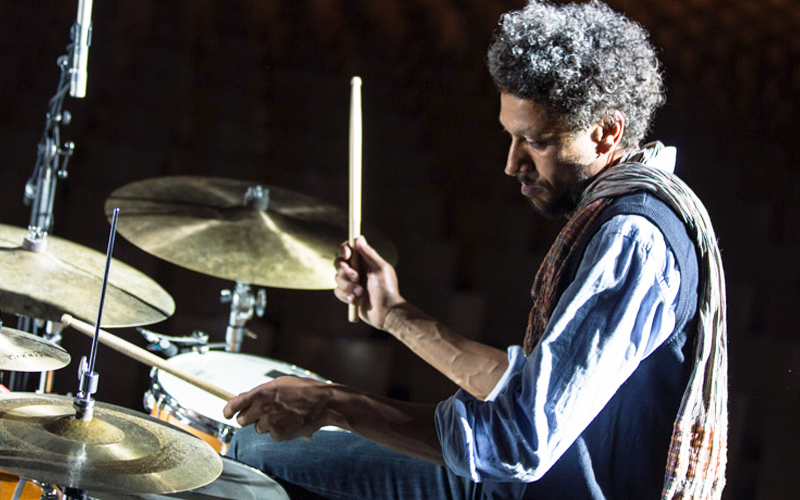
Jan Burkamp
Jan Burkamp works as a drummer and percussionist in Berlin. In addition to his classical percussion training, he studied ethnology and comparative musicology at the Free University of Berlin. As a live- and studio-musician he has played in numerous ensembles in diverse musical styles.
-
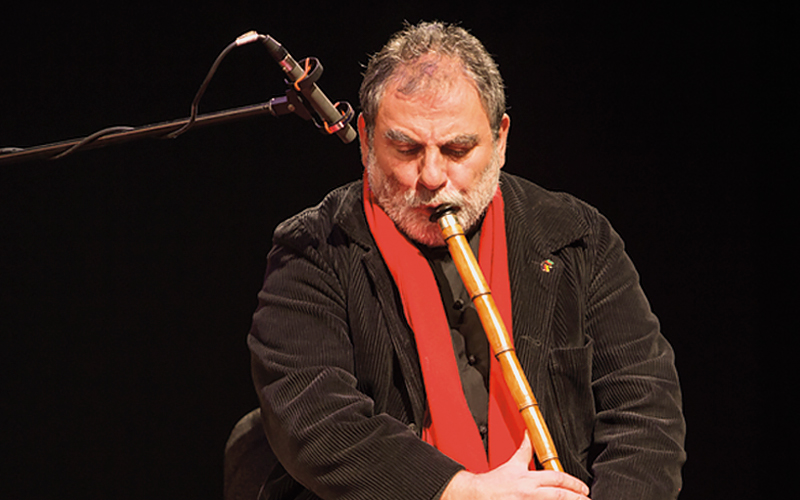
Kudsi Erguner
Kudsi Erguner is a Turkish ney flute player and composer. Following his studies in architechture and musicology, he founded the Mevlana Institute in Paris, which researches and disseminates classical Sufi music. In the Kudsi Erguner Ensemble, he combines music from the Mevlevi Sufi tradition with modern and classical forms. He has limitless experience with opera, ballet and theatre as well as performing on soundtracks from Peter Brook and Peter Gabriel. Currently he teaches at the Conservatory in Rotterdam and Venice.
-
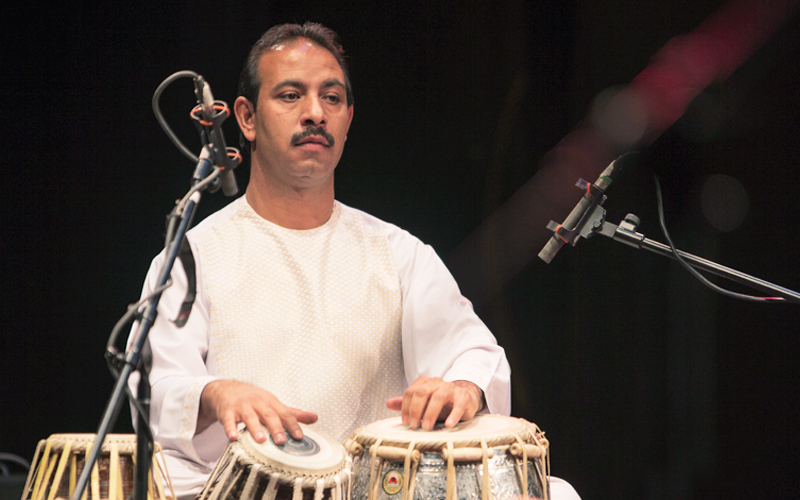
Ustad Fraidoon
Ustad Fraidoon studied tabla in Kabul’s famous Kharabat district with the Cheshti family, one of Kabul’s longest-established musical families. He can trace his musical pedigree back to the glorious classical traditions of India. Ustad Fraidoon is often seen performing alongside many talented musicians, and shows his versatility by performing not only with the classical traditions but also in various fusion ensembles.
-
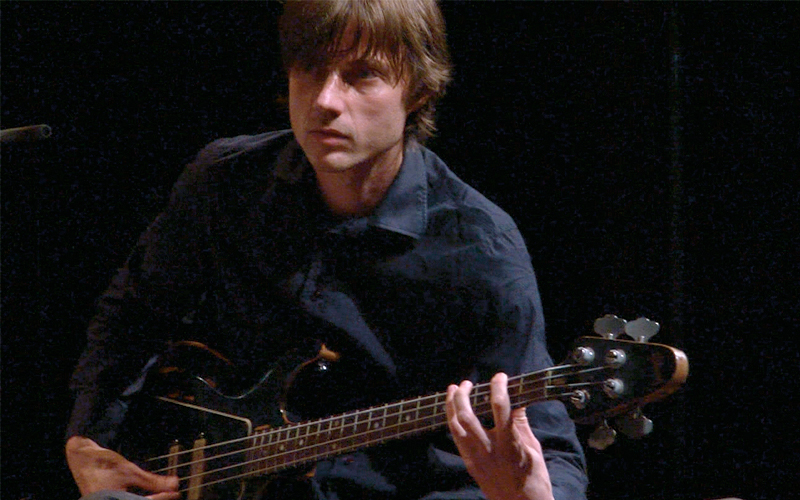
Jörg Holdinghausen
Jörg Holdinghausen is founder and member of the German rock/pop band "Tele". Since 2006, he toured with "Tele", supported by the Goethe-Institute, throughout Africa and Asia. He works as a singer, bass and piano player with numerous bands such as "Wir sind Helden“ or "Judith Holofernes" and his own ensemble "Per Anders”.
-
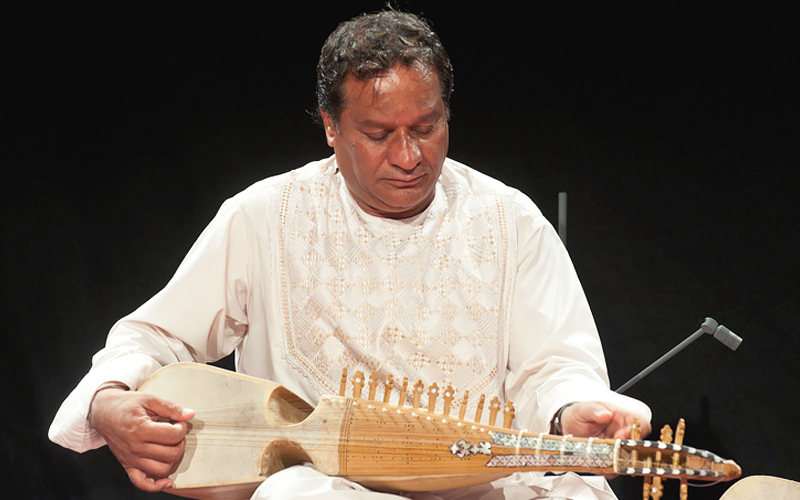
Ustad Ghulam Hussain
Ustad Ghulam Hussain, son of the musician Ustad Ghulam Hassan, was born in 1960 in the musician’s quarter of Kabul, Kuche Kharabat, and studied rubab with the famous rubab virtuoso, Ustad Mohammad Omar. Following his studies, he played for the national Radio-Television of Afghanistan, before joining the Afghan Music Orchestra of the Ministry of Culture. Ustad Ghullam Hussain, as well as teaching rubab to his countless students, has participated in concerts and music festivals all over Europe.
-
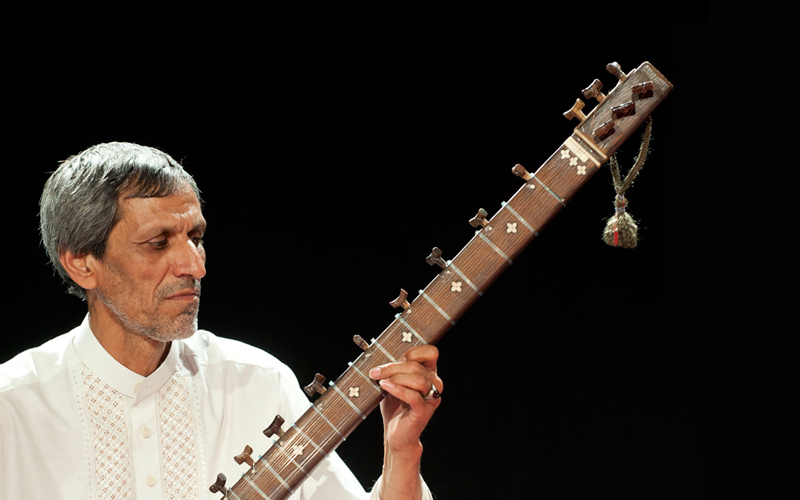
Ustad Ehsan Irfan
Ustad Irfan Ehsan first learned to play the tanbur and then studied sitar with Ustad Irfan Khan in the 1980s. He has performed frequently in Afghanistan, and regularly plays in award-winning traditional ensembles. He teaches traditional music to countless students and has also performed in Uzbekistan and Germany.
-
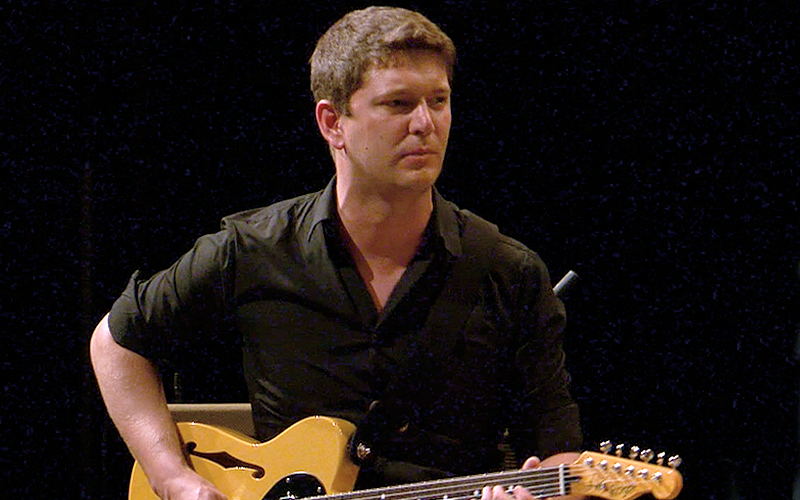
Arne Jansen
Arne Jansen studied jazz guitar at the University of Arts in Berlin, and was also member of the Youth Jazz Orchestra of the Federal Republic of Germany, under the direction of Peter Herbolzheimer. He is the founder of the ‘Arne Jansen Trio’ jazz band, as well as playing in several ensembles. His busy concert career has taken him across Europe, USA, and Central Asia. Arne is also a workshop leader, teaching at home and abroad.
-
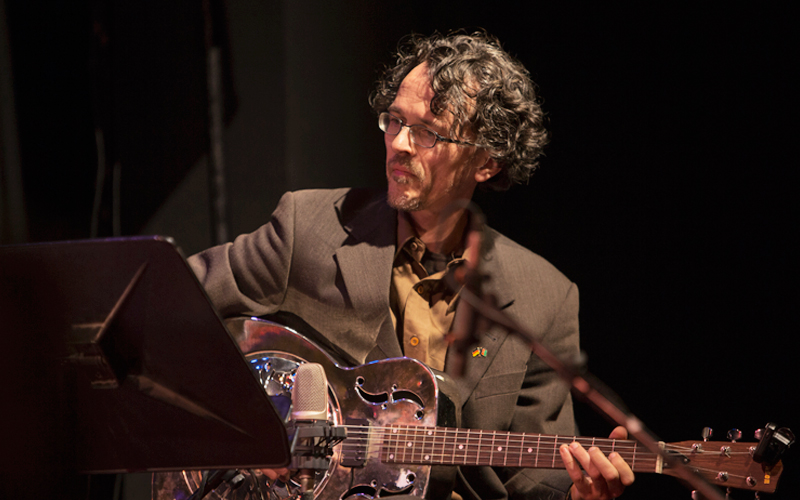
Christian Kögel
Christian Kögel studied classical guitar and electric guitar at the Academy of Arts in Berlin. From 1998 to 2000 he also learned oud and traditional Arabic music with the Syrian oud virtuoso Farhan Sabbagh. He plays with numerous Berlin and national bands, and can be heard on numerous recordings. Since 1991, he teaches electric guitar at the Music School of Spandau and in jazz workshops at home and abroad.
-
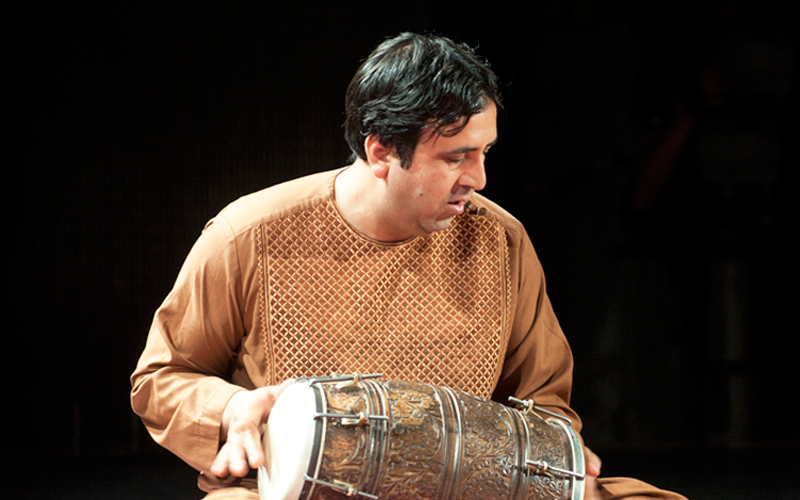
Abdul Latif
Abdul Latif was born in 1972, in Kuche-Kharabat. He first studied the tula with Ustad Dost Mohammad, but has also studied tabla, dohl, and harmonium. Abdul Latif began his professional career in 1991 with Radio Afghanistan. He was, like many other musicians, forced to leave Afghanistan under the Taliban regime and, in 2001, finally returned to his homeland. His musical career has taken him to Pakistan, India, Morocco, England and Germany.
-
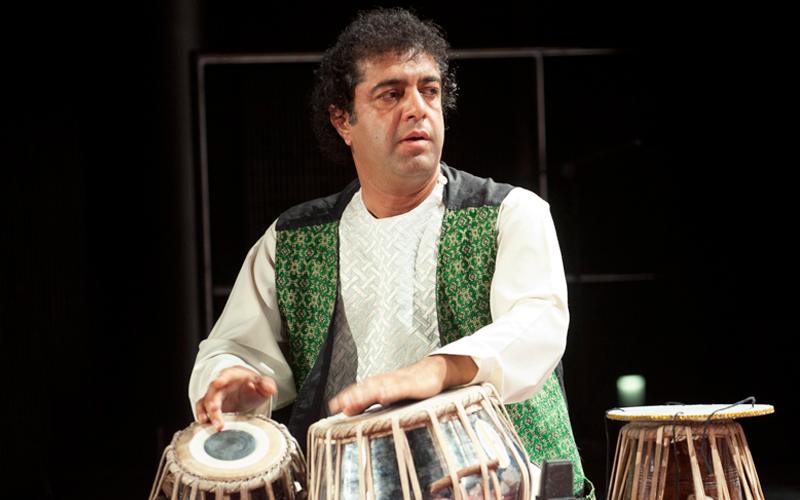
Jawed Mehmood
Jawed Mehmood, son of the well-known Tabla player Ustad Mohammad Aref Mahmud, was born in Kuche Kharabat in Kabul's old city. Jawed’s musical career began as a member of the Kabul radio orchestra. He teaches and has performed in many festivals in Afghanistan and abroad.
-
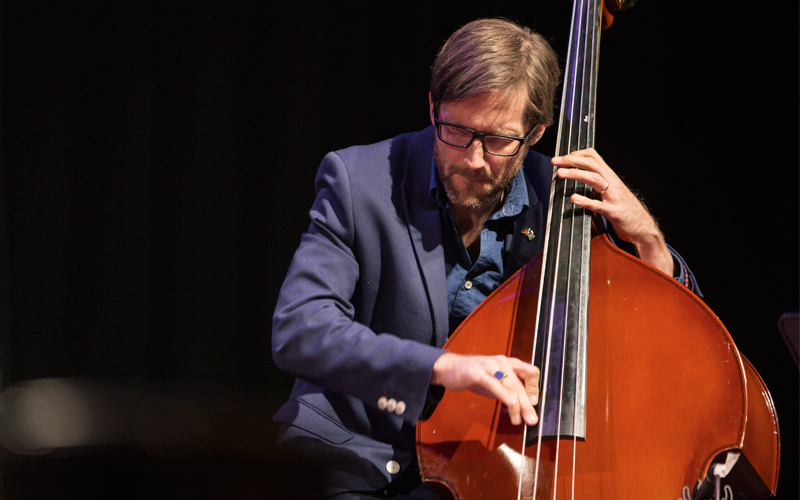
Oliver Potratz
Oliver Potratz studied the contrabass and jazz at the University of Arts in Berlin. In 2008, he won the New German Jazz Award. His concert tours have taken him from Europe to Asia, Latin America, Africa, and the Middle East. He has worked together with many famous musicians form the German jazz scene, and has taken part in many musical productions.
-
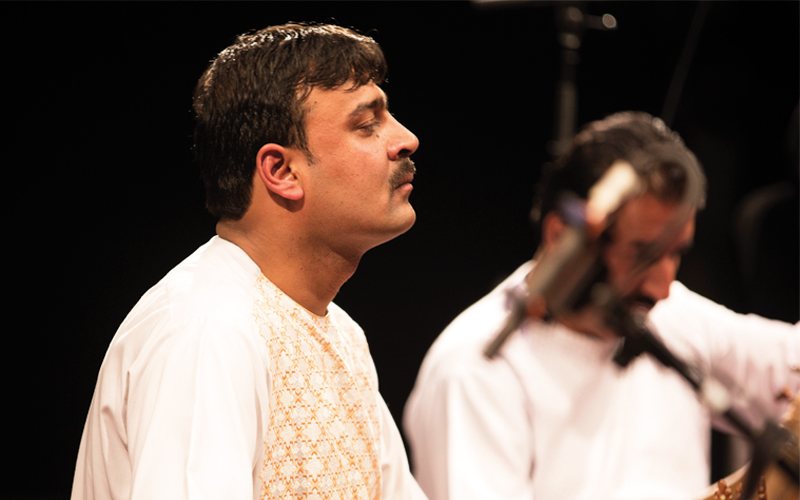
Ustad Rameen Saqizada
Also known as Ustad Khial Mohammed, Ustad Rammeen teaches rebab. The Kharabat district of Kabul is home to many master musicians, and it was here that Ustad Rameen studied with Payenda Mohammad Nekzad. His virtuoso playing made its mark at an early age, and he represented the Afghanistan National Institute of Music at the international Music-Camp GLOMUS in Tanzania
-
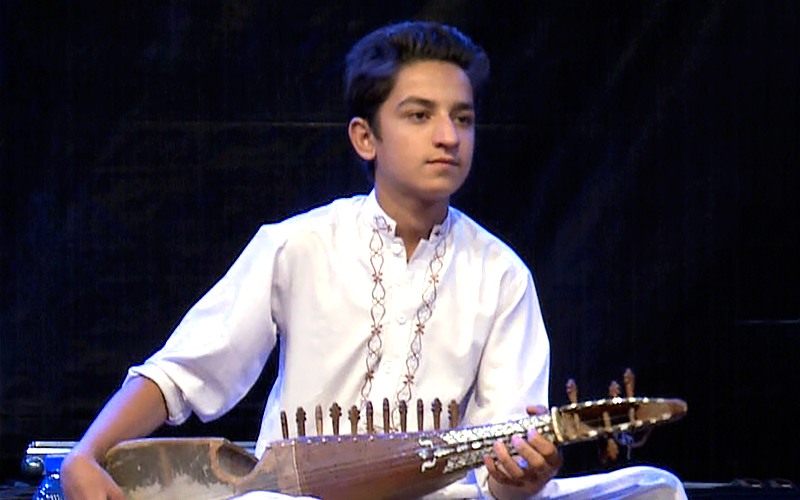
Ahmad Samim Zafar
Ahmad Samim was born in 1998 into a musical family. His father is a well-known rubab player and Ahmad Samim follows in his footsteps. He studies the rubab at the Afghanistan National Institute of Music and, with the Young Afghan Traditional Ensemble, has performed concerts all over the world.
-
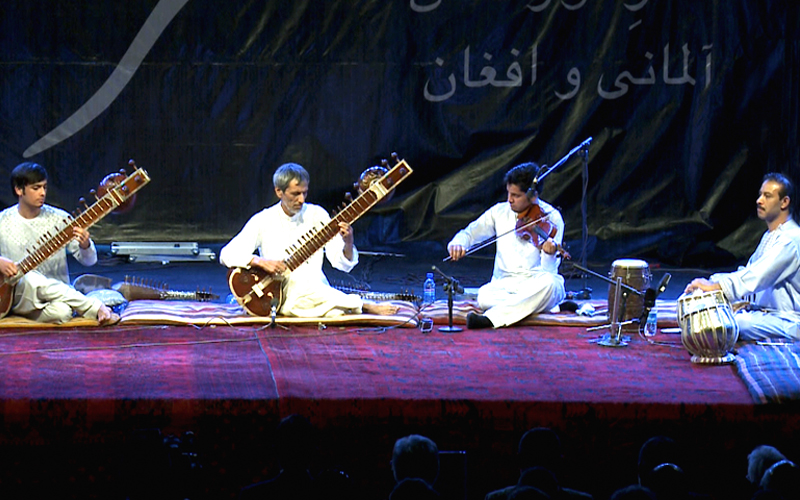
Sitar-Meisterschülerensemble
The Master-Class Ensemble at the Afghanistan National Institute of Music consists of Farshad Feyzi on sitar and Ali Esmailzadah on violin, accompanied by their teacher Ustad Ehsan Irfan. The group is dedicated to ragas from the classical Hindustani instrumental music tradition.
-
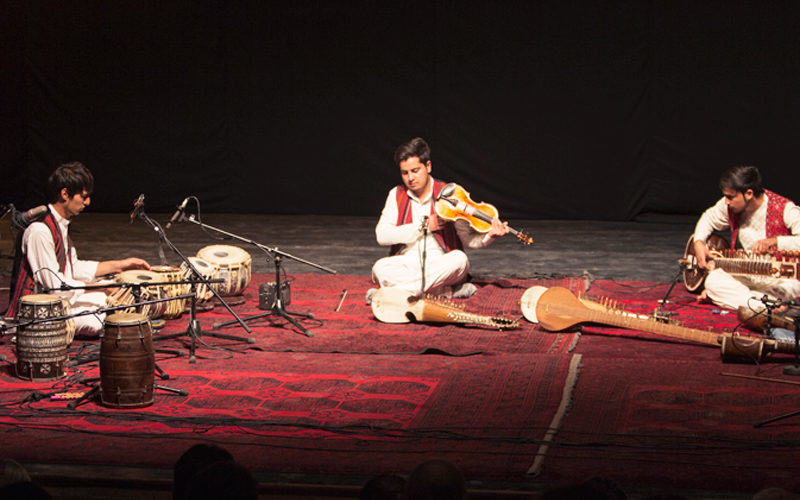
Young Afghan Traditional Ensemble
The Young-Afghan Traditional Ensemble was founded as the junior ensemble at the Afghanistan National Institute of Music. The ensemble consists of Fazila Zamiran (rubab), Ahmad Samim Zafar (rubab), Mustafa Darwishi (rubab, harmonium), Ahmadullah Nabizada (tabla), Samihullah Sarwari (dilruba), Rohullah Baqizada (tanbur), Ali Esmahilzada (violine), Farshad Fayzi (sitar), Waheedullah Amiri (harmonium), Eraj Khorasani (ghichak), Abdul Wahab (ghichak) and Ahmadullah Nabizada (dhol). They perform traditional Afghan song, and have extensive concert experience.


